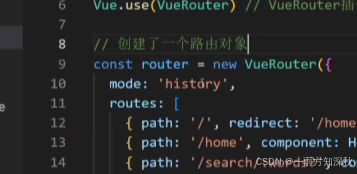……接上文
fputs(输入字符串)
int fputs(const char *s, FILE *stream);
功能:向指定文件中输入一串字符
参数:
s:输入字符串的首地址
stream:文件流指针
返回值:成功返回输出字符个数
失败返回EOF
文件指针偏移函数
1. rewind
void rewind(FILE *stream)
功能:将文件指针定位到文件开头
参数:流指针2.ftell
long ftell(FILE *stream)
功能:计算文件指针当前的位置(相对于文件开头)
返回值:成功:返回当前文件指针相较于开头的字节数
失败:-1;3.fseek
int fseek(FILE *stream, long offset, int whence);
功能:将文件指针偏移到指定位置
参数:
stream:流指针
offset:偏移量 +5 --》相对于位置向后偏移5byte-5 --》相对于位置向前偏移5byte
whence:相对位置SEEK_SET:开头SEEK_CUR:当前SEEK_END:结尾
返回值:成功:0
失败:-1,更新errno
举例:
fseek(fp,-10,SEEK_END)
fseek(fp,-10,SEEK_CUR)
练习:使用ftell计算文件的长度
#include <stdio.h>
int main(int argc, char const *argv[])
{
FILE *fp = fopen(argv[1],"r");if (fp == NULL){perror("fopen filed");return -1;}//定位到文件的末尾fseek(fp,0,SEEK_END);//计算文件的长度long lenth = ftell(fp);printf("len:%ld",lenth);fclose(fp);return 0;
}
文件IO
概念
内核向上提供的输出输出函数接口,叫做系统调用函数接口。基于内核,内核不同,系统调用函数接口不同,文件IO不同操作系统函数接口不通用。可移植性较差。
文件IO的特点

(API 函数接口)
- 没有缓存机制,每次调用都会引起系统调用。
- 围绕文件描述符进行操作,文件描述符都是非负的整数,依次进行分配。
- 文件IO默认打开三个文件描述符,0(标准输入),1(标准输出),2(标准错误)
- 可以操作除了目录文件外的任意类型的文件。
文件描述符
文件描述符都是非负的整数,取值范围(0-1023),最多产生1024个文件描述符,文件描述符被分配的时候是连续的。关闭文件描述符之后才可以提供给其他文件使用。
函数接口
open函数(打开文件)
#include <sys/types.h>
#include <sys/stat.h>
#include <fcntl.h>
int open(const char *pathname, int flags);
功能:打开文件
参数:pathname:文件路径名
flags:打开文件的方式
O_RDONLY:只读
O_WRONLY:只写
O_RDWR:可读可写
O_CREAT:创建
O_TRUNC:清 空
O_APPEND:追加
返回值:成功:返回文件描述符
失败:-1r:O_RDONLY
r+: O_RDWR
w: O_WRONLY | O_CREAT | O_TRUNC ,0666
w+: O_REWR | O_CREAT | O_TRUNC , 0666
a: O_WRONLY | O_CREAT | O_APPEND , 0666
a+: O_REWR | O_CREAT | O_APPEND , 0666当文件的打开方式中存在 O_CREAT:创建 时
int open(const char *pathname, int flags, mode_t mode);
mode:创建文件的权限 ,只有在打开方式中有O_CREAT才填充这个参数
创建的文件实际的权限位mode & ~umask。umask是权限掩码,值为0002。 如mode=0666,即创建的文件权限为0664
用于控制新文件或目录的默认权限的设置。它决定了在创建新文件或目录时,哪些权限会被屏蔽。查看权限掩码:umask
修改权限掩码:umask 0000
close函数(关闭文件描述符)
#include <unistd.h>int close(int fd);
功能:关闭文件
用法:close(fd); 示例代码:#include <stdio.h>
#include <sys/types.h>
#include <sys/stat.h>
#include <fcntl.h>
int main(int argc, char const *argv[])
{//打开文件int fd = open("./a.txt", O_RDWR | O_CREAT | O_TRUNC, 0666);if (fd == -1){perror("open err");return -1;}printf("fd:%d\n",fd);//关闭文件close(fd);return 0;
}
read函数(读文件)
#include <unistd.h>
ssize_t read(int fd, void *buf, size_t count);
功能:读文件
参数:fd:文件描述符
buf:存放内容的首地址
count:期待读取字符的个数
返回值:成功实际读到字符的个数,读到文件结尾返回0
失败返回-1,更新errno注意事项:使用read函数时需要注意:read读文件,一般期待读多少字符就是读多少,不会自动补’\0‘,遇到\n也不会自动停止读取,会继续读下一行的内容。
'\0'需要自己补充,考虑预留一个字节补'\0'使用技巧
1.通过返回值作为实际读到的字符个数,后面补‘\0’;
char buf[32];
int ret = read(fd,buf,31);
buf[ret] = '\0';
2.每次读取的内容读取之前先清空数组
清空函数:bzero memset
write函数(写文件)
ssize_t write(int fd, const void *buf, size_t count);
功能:写文件
参数:
fd:文件描述符
buf:写内容存放的首地址
count:期待写字符的个数
返回值:成功实际写字符的个数
失败返回-1,更新errno 使用技巧:
int ret = read(fd,buf,32); //read函数返回值为读取字符的个数
write(fd,buf,ret);
lseek(偏移函数)
#include <sys/types.h>
#include <unistd.h> off_t lseek(int fd, off_t offset, int whence);
功能:将文件指针移动到指定位置
参数:
fd:文件描述符
offset:偏移量 +向后 -向前
whence:相对位置SEEK_SET:开头SEEK_CUR:当前SEEK_END:结尾
返回值:成功:当前位置(基于文件开头)
失败:-1,更新errno
例:
lssek(fd,0,SEEK_SET)//偏移到开头
标准IO和文件IO的对比
| 标准IO | 文件IO | |
| 概念 | c库中定义的一组用于输入输出的函数接口 | 系统中定义的一组用于输入输出的函数接口 |
| 特点 |
|
|
| 函数: | 打开文件:fopen 关闭文件:fclose 读写操作:fgetc fputc fputs fgets fread fwrite 定位操作:fseek rewind ftell 时间:time localtime 其他:fflush fprintf perror | 打开文件:open 关闭文件:close 读写操作:read write 定位操作:lseek |
目录操作函数
opendir打开目录
#include <sys/types.h>
#include <dirent.h>
DIR *opendir(const char *name);
功能:打开目录文件
参数:name:文件名
返回值:成功返回目录流指针
失败返回NULL示例代码;
#include <sys/types.h>
#include <dirent.h>
#include <stdio.h>
int main(int argc, char const *argv[])
{//打开当前目录
DIR *dirp = opendir("./");if (dirp == NULL){perror("opendir err");return -1;}return 0;
}
closedir关闭目录
#include <sys/types.h>
#include <dirent.h>
int closedir(DIR *dirp);
功能:关闭目录
参数:dirp:目录流指针
返回值:成功0,失败-1,更新errno
readdir读取目录内容
#include <dirent.h>
struct dirent *readdir(DIR *dirp);
功能:读取目录中的内容
参数:dirp:目录流指针
返回值:成功返回结构体指针,读到结尾返回NULL
失败返回NULL,更新errnostruct dirent {
ino_t d_ino; /* 文件的inode号 */
off_t d_off; /* Not an offset; see below */unsigned short d_reclen; /* Length of this record */
unsigned char d_type; /* 文件类型,但不是所有的都支持
char d_name[256]; /*文件名 */};
练习:使用以上的三个函数实现ls的功能
#include <stdio.h>
#include <unistd.h>
#include <dirent.h>
int main(int argc, char const *argv[])
{
DIR *dirp = opendir("./");if (dirp == NULL){perror("opendir err");return -1;}struct dirent *ch = readdir(dirp);while (ch != NULL){if (ch->d_name[0] != '.'){printf("%s ", ch->d_name);}
ch = readdir(dirp);}printf("\n");closedir(dirp);return 0;
}
chdir修改所处路径
chdir 修改当前所处路径#include <unistd.h>int chdir(const char *path);
功能:改变当前所处的路径
参数:path:修改的路径、
返回值:成功0
失败:-1,更新errno示例代码:
#include <stdio.h>
#include <unistd.h>
#include <sys/types.h>
#include <sys/stat.h>
#include <fcntl.h>int main(int argc, char const *argv[])
{chdir("../");int fd = open("./aa.txt", O_RDWR | O_CREAT | O_TRUNC,0777);if (fd == -1){perror("open err");return -1;}close(fd);return 0;
}
未完待续……



















